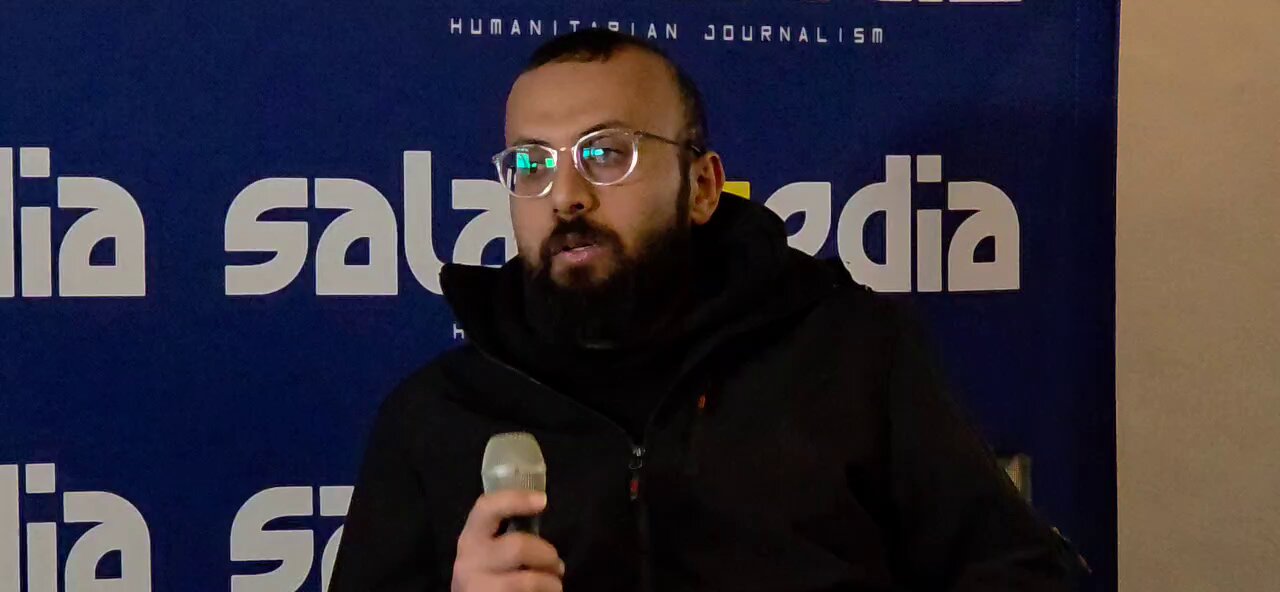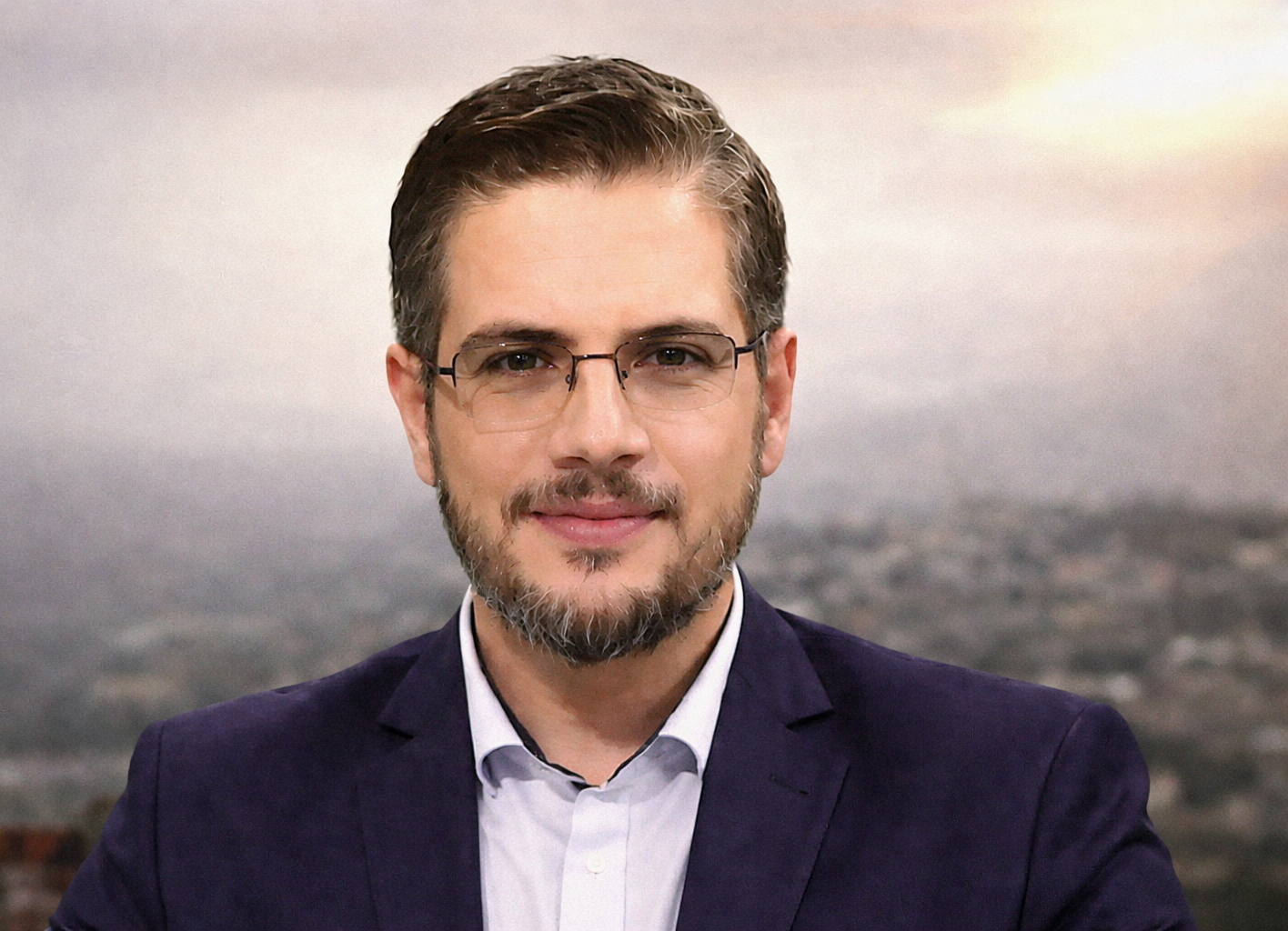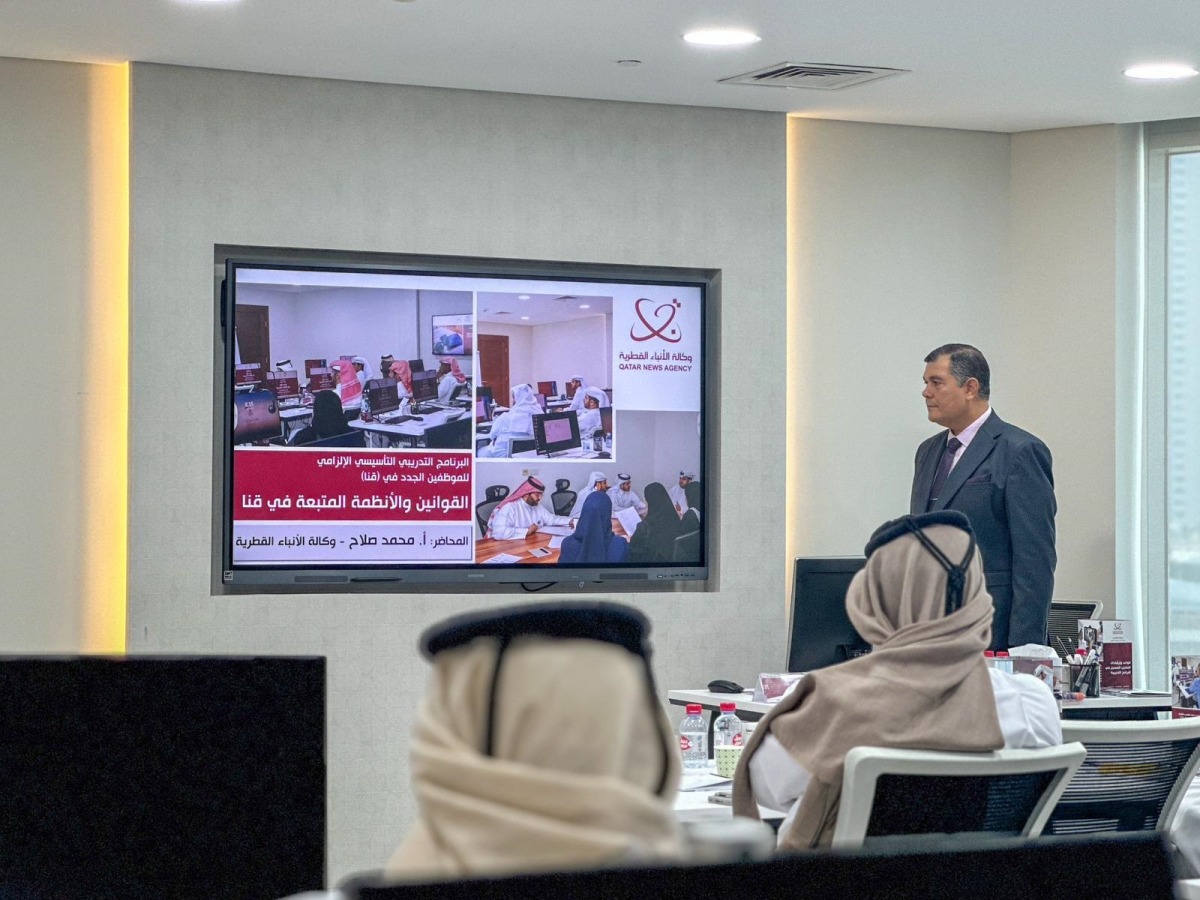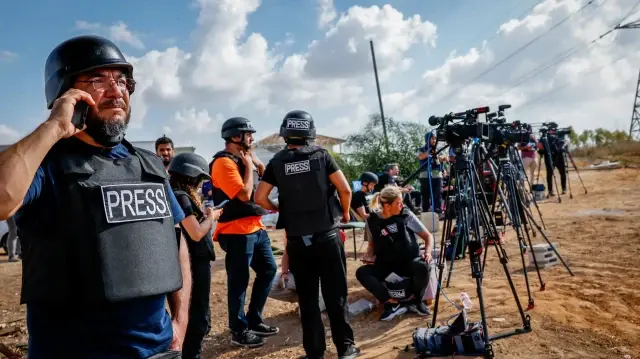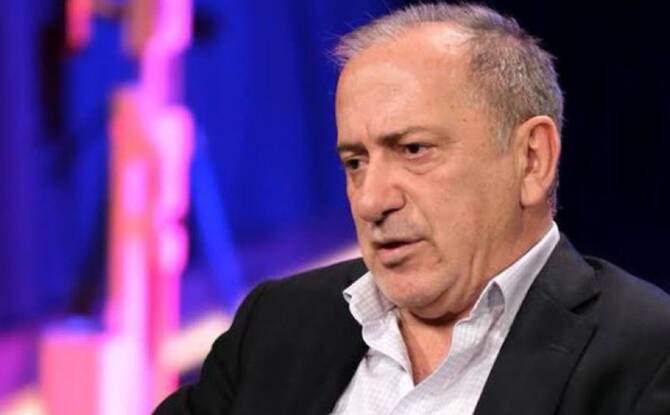
Veteran Journalist Fatih Altaylı Detained in Turkey Over Alleged Threat to Erdoğan
June 21, 2025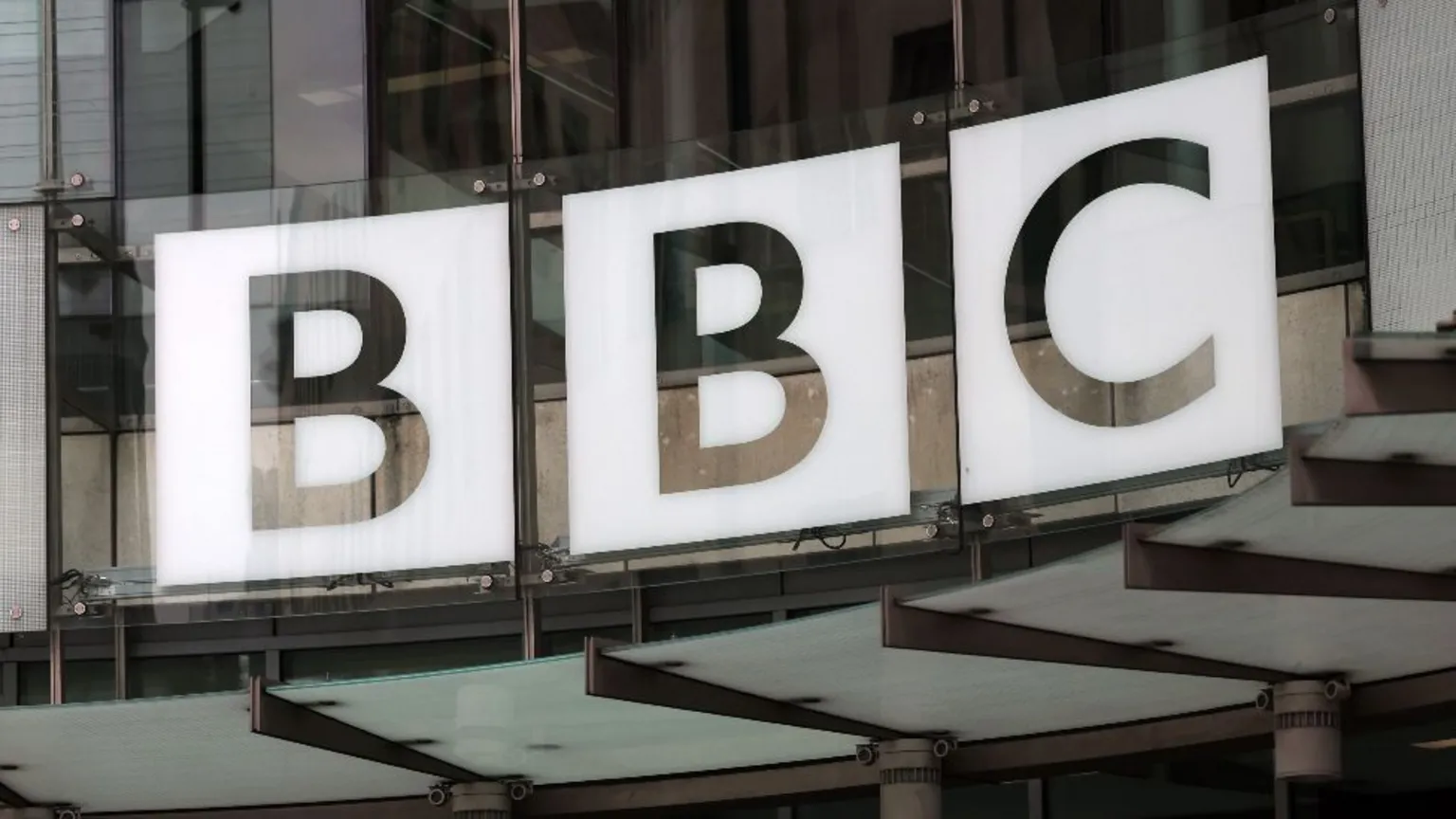
BBC Shelves Gaza Medics Documentary Citing Impartiality Concerns
June 21, 2025June 21, 2025 – Palestine –
Palestinian photojournalist Belal Khaled has revealed searing insights into the ongoing Gaza conflict, highlighting the devastating human cost and the critical role journalists play in bearing witness. Speaking during a visit to South Africa in June 2025, Khaled shared emotional testimony about life on the front lines, where documenting the truth comes at immense personal risk. Khaled described walking through destroyed neighborhoods, photographing families torn apart by Israeli airstrikes, and capturing images of children playing among rubble. His work goes beyond visuals—it tells deeply human stories of survival, loss, and resilience. In his words, “Our cameras are our protection, our witness, our proof.” Through his lens, he offers a window into a warzone largely inaccessible to the global media. He stressed that journalists in Gaza are not just observers—they are targets. According to the Committee to Protect Journalists, at least 178 journalists, the vast majority Palestinian, have been killed since October 2023, making the war in Gaza the deadliest conflict for journalists in the 21st century. Media offices have been bombed, reporters have been killed with their families, and others continue working under extreme psychological and physical pressure. Despite these dangers, Khaled emphasized the importance of continuing to document what is happening in Gaza. He believes international solidarity and attention are crucial to holding powerful actors accountable. Speaking to South African audiences, he urged the global public not to turn away, noting that silence allows further atrocities to occur. Khaled also highlighted how photojournalism serves as a form of resistance. In a region where access is restricted and narratives are tightly controlled, images become powerful tools for truth-telling. His photos, shared widely online and in international outlets, counter misinformation and humanize the suffering, often reduced to statistics. His visit to South Africa was a call for awareness, empathy, and action. Belal Khaled’s testimony reminds the world that behind every headline are lives shattered—and that journalists risk everything to ensure those stories are not forgotten.
Reference –

